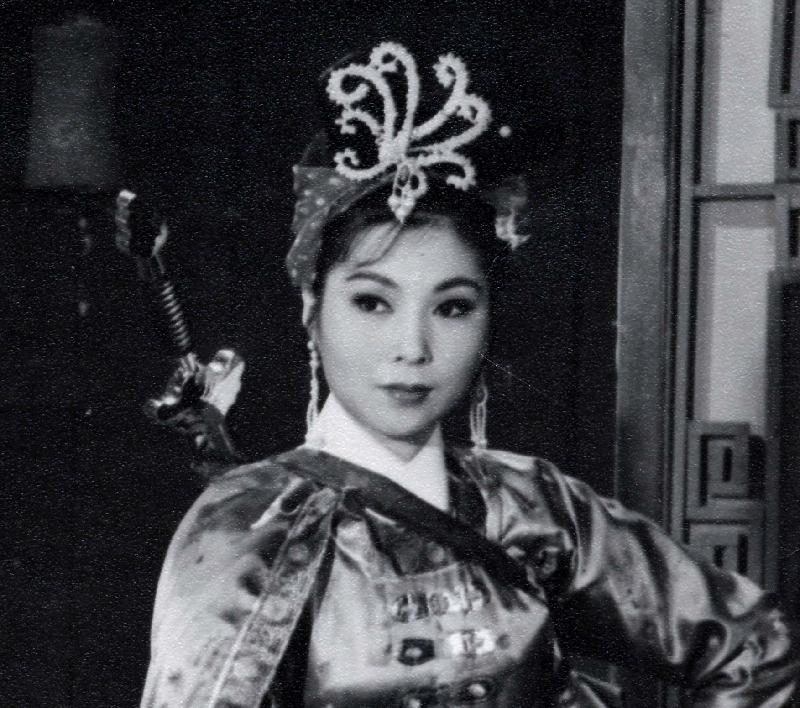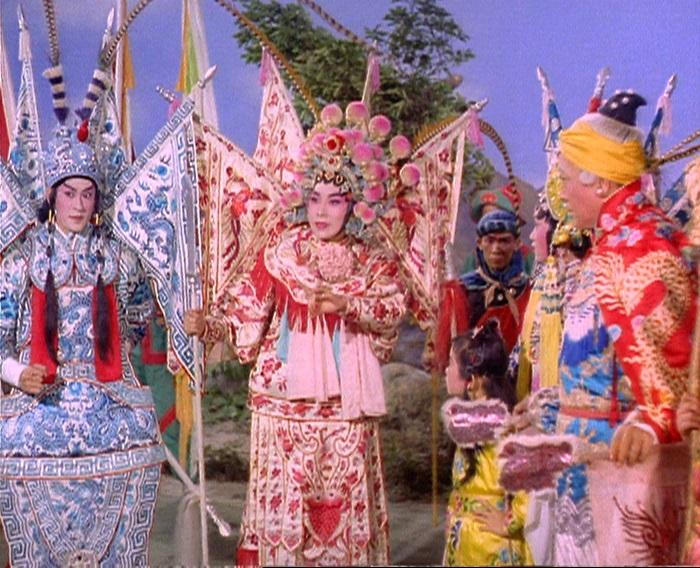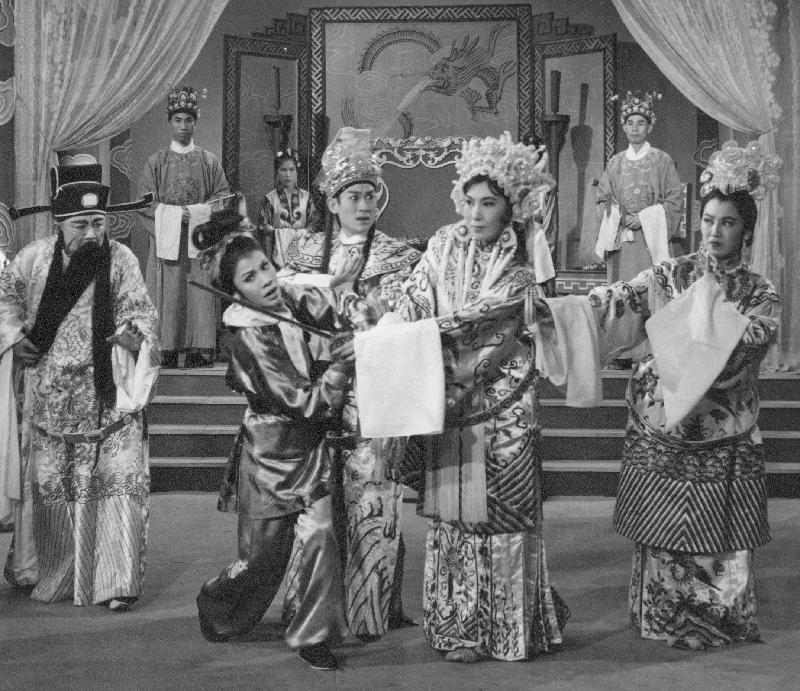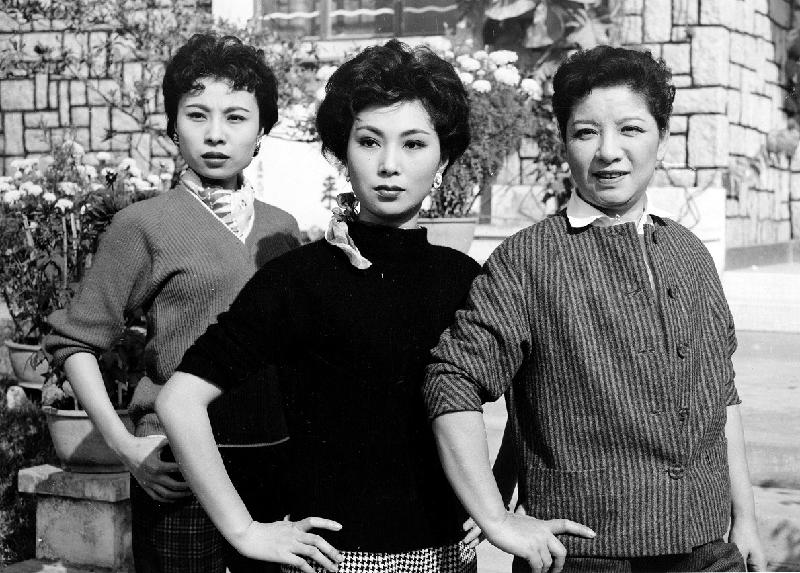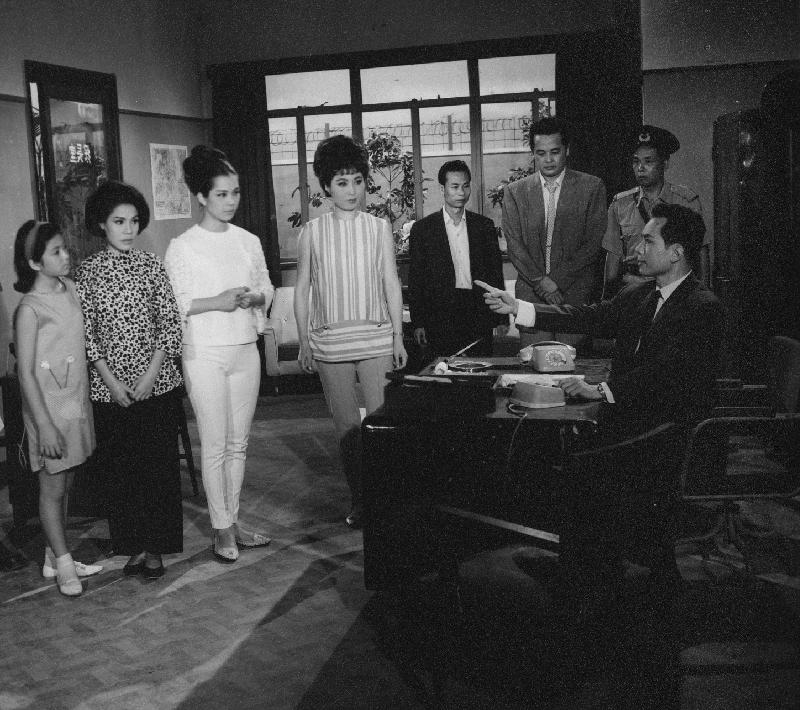Film Archive's "Morning Matinee" to feature Yu So-chow's best-known films (with photos)
***************************************************************************************
Yu So-chow, originally named Yu Xiaofeng, was born into a Peking opera family. Her father, Yu Zhanyuan, was a famous Peking opera wusheng (male lead in a martial role), as well as a master of the well known "Seven Little Fortunes" troupe. With a strong background in martial arts, Yu found fame as a daomadan during her teenage years. After moving to Hong Kong, Yu was invited to be cast in numerous martial arts films, enabling her to become a stage sister with seven other Cantonese opera actresses including Tang Bik-wan and Law Yim-hing. The actresses formed the "Eight Peonies", with Yu dubbed the "Black Peony".
In "The Secret Book" (1961), Lam Kar-sing is involved with three women - his enemy's daughter Yu, his sister-in-arms Chan Ho-kau, and martial arts master Tang Bik-wan. Yu, who falls in love with Lam at first sight, is a feisty romantic heroine and strives hard for her loved one. The screening will be followed by a talk with film critic and researcher Po Fung as speaker.
Peking opera legend Fen Juhua served as an action choreographer in "The Invincible Yeung Generals" (1961), in which her disciples, including Lam Kar-sing, Chan Ho-kau and Shum Chi-wah showcase their talents, infusing the acrobatic combat of Peking opera into this Cantonese opera film. Yu, playing Muk Kwai-ying, takes the lead and displays her signature Northern School martial arts techniques.
"Lui Bo" (1961) features the cross-dressing Yu as dashingly handsome Lui Bo, who is perfectly matched with the gorgeous Diu Sim, played by Ng Kwan-lai. Yu gets the chance to co-star with her father Yu Zhanyuan, who plays Kwan Yu fighting against Lui Bo in the scene of the Battle of Hulao Pass. The dueling pair alternate cautious moves with fierce strokes, to the perfect accompaniment of measured gong-and-drum beats – all of which make it one of the greatest fighting scenes in Yu's film career.
In "A Child Was Born Under Bridge" (1962), which is based on Legend of the White Snake folklore, Yu features as the titular white snake spirit who excels in her acclaimed "13 spears" move - the ability to kick more than 10 long spears in a row back to her stage partners. Josephine Siao Fong-fong, who stars as the green snake spirit, also received training in Peking opera. Siao plays in the sword-wielding scene with Yu, which was finely choreographed by Yu's father.
Yu disguises herself as the warrior Poon On in "Valiant Poon On" (1963), so as to participate in a tournament and win an heiress' hand in marriage, but in reality Poon On can't marry the heiress. Yu's real love - on and off the screen - is the male lead, Mak Bing-wing. The screening will be followed by a talk hosted by Po Fung.
In "The Prince and Two Queens" (1963), the concubine of the west palace (Lee Hong-kum) gains the upper hand over the concubine of the east palace (Yu Lai-zhen), capturing the king's heart. But then a civilian girl (Yu So-chow) arrives with the baby prince in her arms and is determined to take over leading position in the east palace. The plot thickens when the real mother of the prince returns, ready to fight for her rightful place. The situation leads to a rare dramatic showdown between the two famed heroines of Peking opera (Yu So-chow) and Cantonese opera (Yu Lai-zhen).
Sometimes referred to as a "Jane Bond" film, "The Story of Wong Ang the Heroine" (1960) follows the heroine played by Yu who has to clear her name and outwit the bad guys when she is framed for a diamond robbery. Yu partners with her fellow action heroines from the north, Wu Lai-chu and Yam Yin, forming a historically significant casting choice for the genre.
In "Dial 999 for the Three Murderers" (1965), the three female leads, namely Yu Lai-zhen, Patricia Lam Fung and Yu So-chow, admit to the same murder. Through the three women's stories the audience learns of the miserable lives of the trio. Featuring as a martial arts performer from the Mainland, the audience hears Yu speaking Cantonese without dubbing - a rarity for Yu as a Mandarin native speaker.
In "Bachelors Beware" (1960) Linda Lin Dai has been in love with her dissolute cousin since she was young, and now she schemes to kick his three girlfriends out. Her plan goes smoothly until she encounters Yu. Yu shines in a tender and sweet role in a departure from her iconic heroine persona, in which her charm and beauty measure up to that of the superstar Lin Dai. Their brilliant performances make the film an amusing romantic comedy.
"Bachelors Beware" is in Mandarin and the other films are in Cantonese. All films are without subtitles.
Tickets priced at $30 are now available at URBTIX (www.urbtix.hk). For credit card telephone bookings, please call 2111 5999. For programme details, please visit www.lcsd.gov.hk/CE/CulturalService/HKFA/en_US/web/hkfa/programmesandexhibitions/ysc/index.html or call 2739 2139.
Ends/Wednesday, October 4, 2017
Issued at HKT 11:30
Issued at HKT 11:30
NNNN





